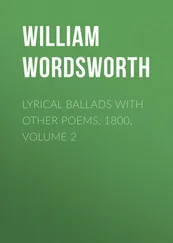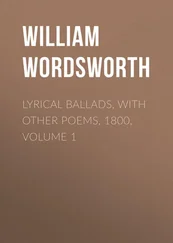Samuel Coleridge - Lyrical Ballads, With a Few Other Poems (1798)
Здесь есть возможность читать онлайн «Samuel Coleridge - Lyrical Ballads, With a Few Other Poems (1798)» весь текст электронной книги совершенно бесплатно (целиком полную версию без сокращений). В некоторых случаях можно слушать аудио, скачать через торрент в формате fb2 и присутствует краткое содержание. Год выпуска: 2005, Жанр: Поэзия, на английском языке. Описание произведения, (предисловие) а так же отзывы посетителей доступны на портале библиотеки ЛибКат.
- Название:Lyrical Ballads, With a Few Other Poems (1798)
- Автор:
- Жанр:
- Год:2005
- ISBN:нет данных
- Рейтинг книги:5 / 5. Голосов: 1
-
Избранное:Добавить в избранное
- Отзывы:
-
Ваша оценка:
- 100
- 1
- 2
- 3
- 4
- 5
Lyrical Ballads, With a Few Other Poems (1798): краткое содержание, описание и аннотация
Предлагаем к чтению аннотацию, описание, краткое содержание или предисловие (зависит от того, что написал сам автор книги «Lyrical Ballads, With a Few Other Poems (1798)»). Если вы не нашли необходимую информацию о книге — напишите в комментариях, мы постараемся отыскать её.
Lyrical Ballads, With a Few Other Poems (1798) — читать онлайн бесплатно полную книгу (весь текст) целиком
Ниже представлен текст книги, разбитый по страницам. Система сохранения места последней прочитанной страницы, позволяет с удобством читать онлайн бесплатно книгу «Lyrical Ballads, With a Few Other Poems (1798)», без необходимости каждый раз заново искать на чём Вы остановились. Поставьте закладку, и сможете в любой момент перейти на страницу, на которой закончили чтение.
Интервал:
Закладка:
His hunting feats have him bereft
Of his right eye, as you may see:
And then, what limbs those feats have left
To poor old Simon Lee!
He has no son, he has no child,
His wife, an aged woman,
Lives with him, near the waterfall,
Upon the village common.
And he is lean and he is sick,
His little body's half awry
His ancles they are swoln and thick
His legs are thin and dry.
When he was young he little knew
Of husbandry or tillage;
And now he's forced to work, though weak,
—The weakest in the village.
He all the country could outrun,
Could leave both man and horse behind;
And often, ere the race was done,
He reeled and was stone-blind.
And still there's something in the world
At which his heart rejoices;
For when the chiming hounds are out,
He dearly loves their voices!
Old Ruth works out of doors with him,
And does what Simon cannot do;
For she, not over stout of limb,
Is stouter of the two.
And though you with your utmost skill
From labour could not wean them,
Alas! 'tis very little, all
Which they can do between them.
Beside their moss-grown hut of clay,
Not twenty paces from the door,
A scrap of land they have, but they
Are poorest of the poor.
This scrap of land he from the heath
Enclosed when he was stronger;
But what avails the land to them,
Which they can till no longer?
Few months of life has he in store,
As he to you will tell,
For still, the more he works, the more
His poor old ancles swell.
My gentle reader, I perceive
How patiently you've waited,
And I'm afraid that you expect
Some tale will be related.
O reader! had you in your mind
Such stores as silent thought can bring,
O gentle reader! you would find
A tale in every thing.
What more I have to say is short,
I hope you'll kindly take it;
It is no tale; but should you think,
Perhaps a tale you'll make it.
One summer-day I chanced to see
This old man doing all he could
About the root of an old tree,
A stump of rotten wood.
The mattock totter'd in his hand;
So vain was his endeavour
That at the root of the old tree
He might have worked for ever.
"You're overtasked, good Simon Lee,
Give me your tool" to him I said;
And at the word right gladly he
Received my proffer'd aid.
I struck, and with a single blow
The tangled root I sever'd,
At which the poor old man so long
And vainly had endeavour'd.
The tears into his eyes were brought,
And thanks and praises seemed to run
So fast out of his heart, I thought
They never would have done.
—I've heard of hearts unkind, kind deeds
With coldness still returning.
Alas! the gratitude of men
Has oftner left me mourning.
ANECDOTE FOR FATHERS SHEWING HOW THE ART OF LYING MAY BE TAUGHT.
I have a boy of five years old,
His face is fair and fresh to see;
His limbs are cast in beauty's mould,
And dearly he loves me.
One morn we stroll'd on our dry walk,
Our quiet house all full in view,
And held such intermitted talk
As we are wont to do.
My thoughts on former pleasures ran;
I thought of Kilve's delightful shore,
My pleasant home, when spring began,
A long, long year before.
A day it was when I could bear
To think, and think, and think again;
With so much happiness to spare,
I could not feel a pain.
My boy was by my side, so slim
And graceful in his rustic dress!
And oftentimes I talked to him,
In very idleness.
The young lambs ran a pretty race;
The morning sun shone bright and warm;
"Kilve," said I, "was a pleasant place,
"And so is Liswyn farm.
"My little boy, which like you more,"
I said and took him by the arm—
"Our home by Kilve's delightful shore,
"Or here at Liswyn farm?"
"And tell me, had you rather be,"
I said and held him by the arm,
"At Kilve's smooth shore by the green sea,
"Or here at Liswyn farm?"
In careless mood he looked at me,
While still I held him by the arm,
And said, "At Kilve I'd rather be
"Than here at Liswyn farm."
"Now, little Edward, say why so;
My little Edward, tell me why;"
"I cannot tell, I do not know,"
"Why this is strange," said I.
"For, here are woods and green-hills warm;
"There surely must some reason be
"Why you would change sweet Liswyn farm
"For Kilve by the green sea."
At this, my boy, so fair and slim,
Hung down his head, nor made reply;
And five times did I say to him,
"Why? Edward, tell me why?"
His head he raised—there was in sight,
It caught his eye, he saw it plain—
Upon the house-top, glittering bright,
A broad and gilded vane.
Then did the boy his tongue unlock,
And thus to me he made reply;
"At Kilve there was no weather-cock,
"And that's the reason why."
Oh dearest, dearest boy! my heart
For better lore would seldom yearn,
Could I but teach the hundredth part
Of what from thee I learn.
WE ARE SEVEN.
A simple child, dear brother Jim,
That lightly draws its breath,
And feels its life in every limb,
What should it know of death?
I met a little cottage girl,
She was eight years old, she said;
Her hair was thick with many a curl
That cluster'd round her head.
She had a rustic, woodland air,
And she was wildly clad;
Her eyes were fair, and very fair,
—Her beauty made me glad.
"Sisters and brothers, little maid,
"How many may you be?"
"How many? seven in all," she said,
And wondering looked at me.
"And where are they, I pray you tell?"
She answered, "Seven are we,
"And two of us at Conway dwell,
"And two are gone to sea.
"Two of us in the church-yard lie,
"My sister and my brother,
"And in the church-yard cottage, I
"Dwell near them with my mother."
"You say that two at Conway dwell,
"And two are gone to sea,
"Yet you are seven; I pray you tell
"Sweet Maid, how this may be?"
Then did the little Maid reply,
"Seven boys and girls are we;
"Two of us in the church-yard lie,
"Beneath the church-yard tree."
"You run about, my little maid,
"Your limbs they are alive;
"If two are in the church-yard laid,
"Then ye are only five."
"Their graves are green, they may be seen,"
The little Maid replied,
"Twelve steps or more from my mother's door,
"And they are side by side.
"My stockings there I often knit,
"My 'kerchief there I hem;
"And there upon the ground I sit—
"I sit and sing to them.
"And often after sunset, Sir,
"When it is light and fair,
"I take my little porringer,
"And eat my supper there.
Интервал:
Закладка:
Похожие книги на «Lyrical Ballads, With a Few Other Poems (1798)»
Представляем Вашему вниманию похожие книги на «Lyrical Ballads, With a Few Other Poems (1798)» списком для выбора. Мы отобрали схожую по названию и смыслу литературу в надежде предоставить читателям больше вариантов отыскать новые, интересные, ещё непрочитанные произведения.
Обсуждение, отзывы о книге «Lyrical Ballads, With a Few Other Poems (1798)» и просто собственные мнения читателей. Оставьте ваши комментарии, напишите, что Вы думаете о произведении, его смысле или главных героях. Укажите что конкретно понравилось, а что нет, и почему Вы так считаете.












